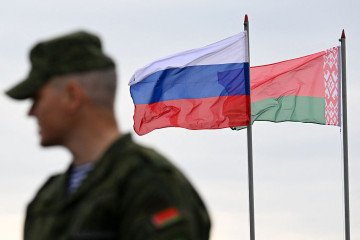- Category
- Latest news
Spain Seizes 13 Tons of Chemicals Bound for Russia, Including for Potential Chemical Weapons

Spanish authorities have intercepted 13 tons of prohibited chemicals, including potential precursors for chemical weapons, intended for Russia.
According to Reuters, citing a joint statement from Spain’s National Police and the tax authority, four suspects were arrested in connection with a criminal organization allegedly attempting to bypass Western sanctions by illegally supplying chemical products to Russia. The operation revealed that the suspects were using a shell company managed by individuals of Russian descent.
The investigation uncovered evidence that internationally sanctioned chemicals, some potentially usable as components for chemical weapons or nerve agents, had previously been exported through this network. The recent seizure occurred at the port of Barcelona, where the chemicals were found in a container.
The arrested individuals face charges of sustained smuggling of banned goods. Police reported that the Spanish company involved had established a complex logistical and financial framework to export these chemicals, utilizing a subsidiary based in Moscow to facilitate the delivery. Additionally, several shell companies were set up in countries such as Armenia and Kyrgyzstan to obscure the actual destination of the goods before they were rerouted to Russia.
The European Union has been actively enforcing sanctions against Moscow since 2022 and is focusing on curtailing the sale of dual-use goods to Russia through Central Asian nations. The United States and the United Kingdom have also accused Russia of violating international laws against chemical weapons on the battlefield in Ukraine, prompting London to impose sanctions on military personnel allegedly involved in their use.
Earlier, Russian diplomat Igor Skryabin was involved in acquiring sniper ammunition and lab equipment in Switzerland, raising concerns about his ties to Russian military intelligence (GRU). Swiss authorities monitored his covert dealings, but diplomatic immunity prevented them from searching the Russian trade office in Bern.


-111f0e5095e02c02446ffed57bfb0ab1.jpeg)

-72b63a4e0c8c475ad81fe3eed3f63729.jpeg)

